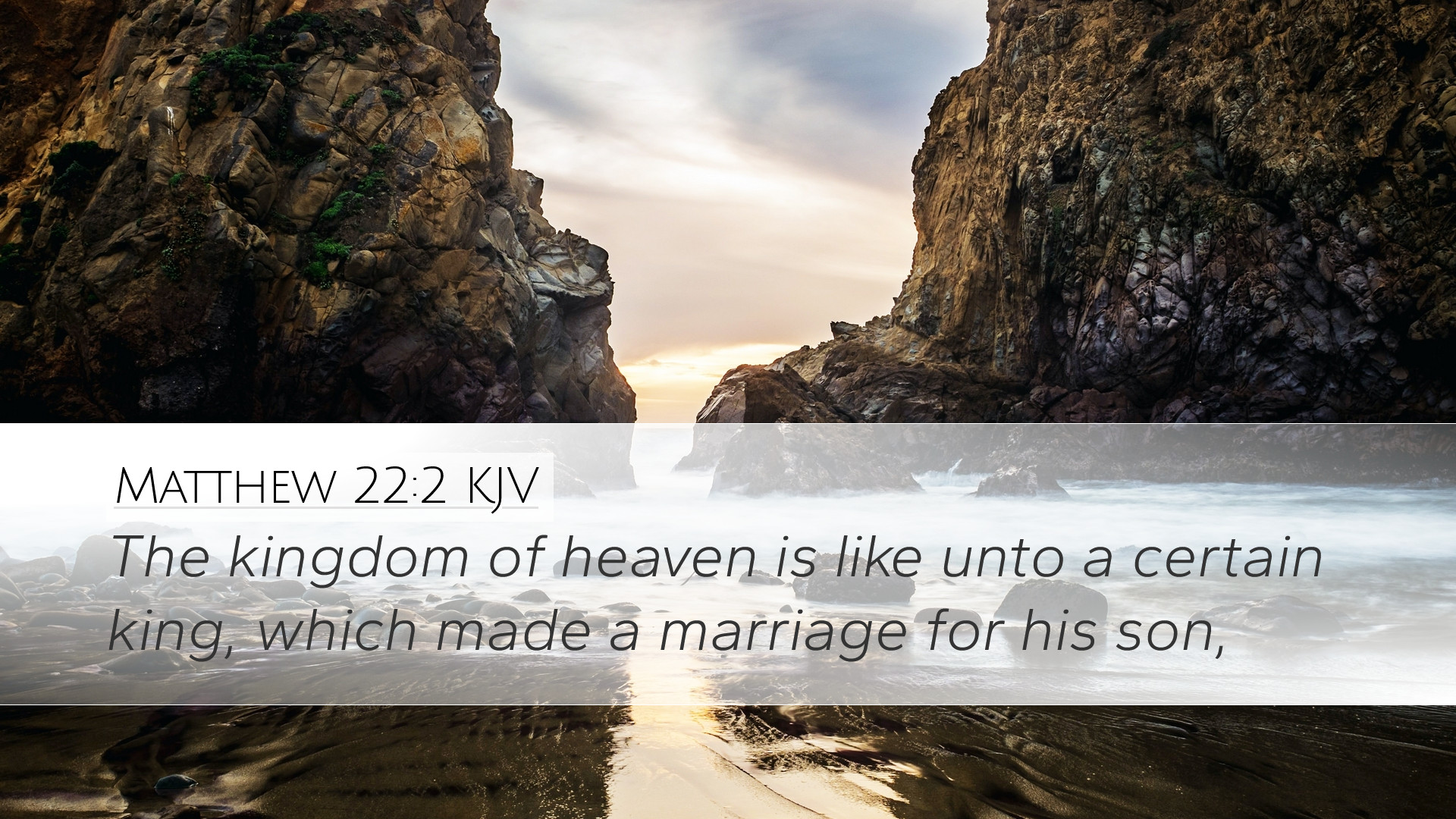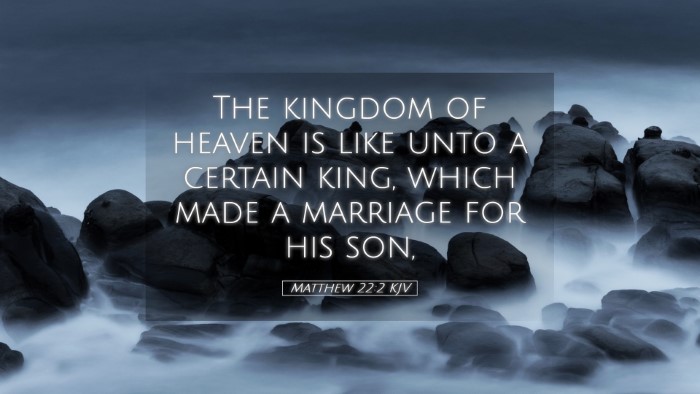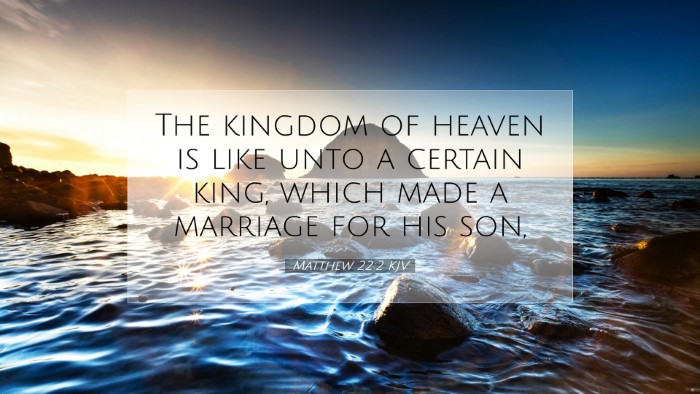Commentary on Matthew 22:2
"The kingdom of heaven is like unto a certain king, which made a marriage for his son."
In this verse, we are introduced to a parable spoken by Jesus, illustrating profound spiritual truths through the familiar imagery of a wedding feast. Drawing from public domain commentaries, we can extract comprehensive insights regarding the significance of this passage.
Contextual Overview
The setting of this parable occurs in the latter days of Jesus’ ministry, shortly before His crucifixion. The Jewish leaders had rejected Him, and thus, Jesus uses this parable to elucidate the nature of the Kingdom of Heaven in relation to His mission and the opportunity it presents for both Israel and the Gentiles.
Visualizing the Parable
Matthew Henry's Commentary highlights that the marriage banquet signifies the joyous and celebratory nature of the Kingdom of Heaven. In ancient times, marriage feasts were occasions of great joy, and Jesus likens the Kingdom to such festive joy, inviting listeners to partake in this divine celebration.
Albert Barnes emphasizes the role of the king, representing God the Father, who purposefully arranges a wedding feast for His Son—Jesus Christ. This imagery portrays God's desire for fellowship and relationship with His creation, underscoring the sacrificial love shown through Christ.
Symbolism of the King and the Marriage
The king's actions symbolize God's invitation to enter into a relationship through Jesus.
Adam Clarke expounds that the "marriage" signifies not only the union of Christ with His people but also the fulfillment of prophecy regarding the Messianic kingdom. The King’s initiative represents God's proactive grace, inviting humanity despite unworthiness.
Theological Implications
This verse encapsulates significant theological themes:
- The Grace of God: The invitation to the wedding signifies God’s grace, extended not only to His chosen people but to all who would respond.
- The Rejection of the Invitation: The subsequent verses reveal that many rejected the invitation, highlighting human obstinacy and unfaithfulness to God.
- Inclusivity of the Gospel: As the invitation is ultimately extended beyond those initially invited, it illustrates the universal call of the gospel.
Responses to the Invitation
The parable calls for a response to God's invitation.
According to Matthew Henry, it is imperative that individuals recognize the privilege of being called to the feast; neglecting such an invitation is a severe disregard for God’s grace and righteousness.
Emphasis is placed on the necessity of preparation and proper attire for the banquet, as inferred in the continuation of the parable. This underscores the importance of righteousness and a heart aligned with God's purposes.
Concluding Thoughts
In summary, Matthew 22:2 sets the stage for understanding the Kingdom of Heaven as a place of joy and celebration. It portrays a God who invites humanity into fellowship through His Son. The reflections of Albert Barnes, Matthew Henry, and Adam Clarke serve to deepen our understanding of God's love, grace, and the serious call for response from those whom He invites.
As pastors, students, theologians, and scholars, may we delve deeper into this parable, recognizing our place at the table and continually responding to God’s gracious invitation.


